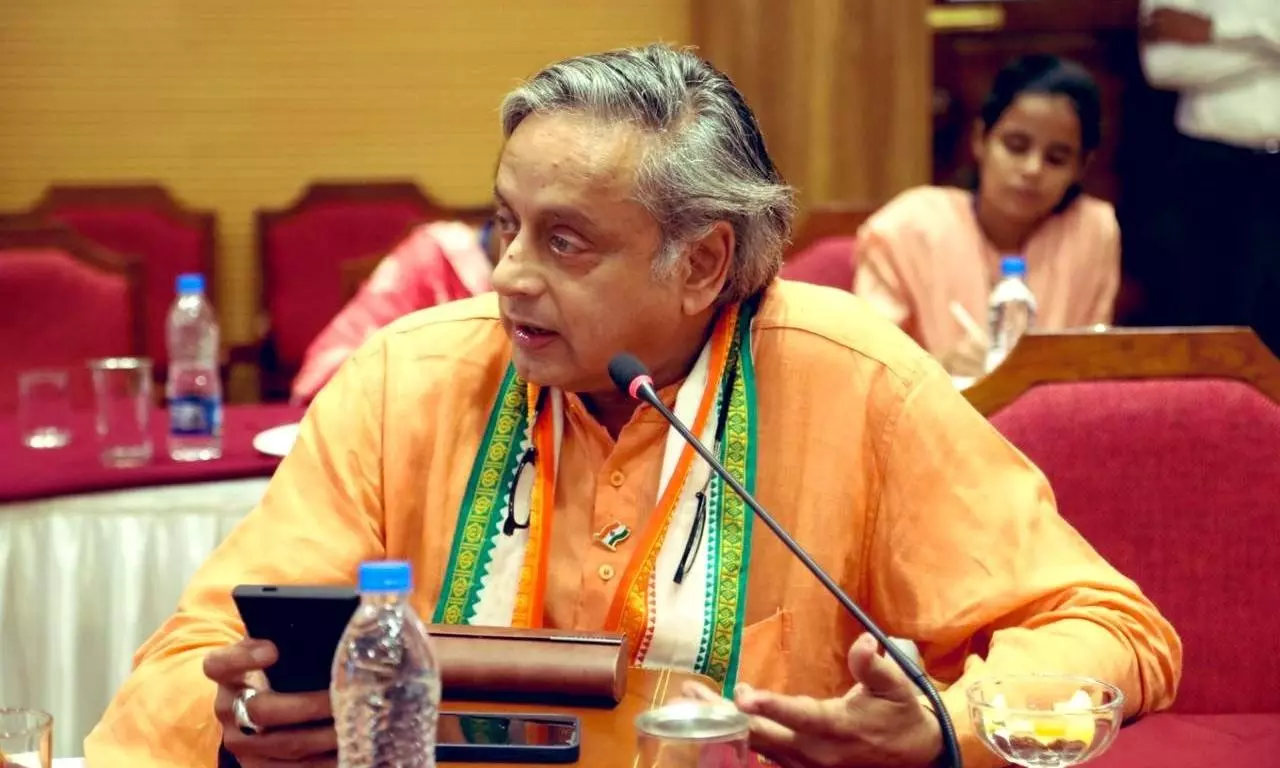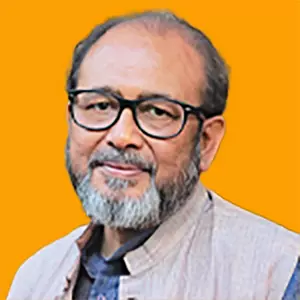
- Home
- India
- World
- Premium
- THE FEDERAL SPECIAL
- Analysis
- States
- Perspective
- Videos
- Sports
- Education
- Entertainment
- Elections
- Features
- Health
- Business
- Series
- In memoriam: Sheikh Mujibur Rahman
- Bishnoi's Men
- NEET TANGLE
- Economy Series
- Earth Day
- Kashmir’s Frozen Turbulence
- India@75
- The legend of Ramjanmabhoomi
- Liberalisation@30
- How to tame a dragon
- Celebrating biodiversity
- Farm Matters
- 50 days of solitude
- Bringing Migrants Home
- Budget 2020
- Jharkhand Votes
- The Federal Investigates
- The Federal Impact
- Vanishing Sand
- Gandhi @ 150
- Andhra Today
- Field report
- Operation Gulmarg
- Pandemic @1 Mn in India
- The Federal Year-End
- The Zero Year
- Science
- Brand studio
- Newsletter
- Elections 2024
- Events
- Home
- IndiaIndia
- World
- Analysis
- StatesStates
- PerspectivePerspective
- VideosVideos
- Sports
- Education
- Entertainment
- ElectionsElections
- Features
- Health
- BusinessBusiness
- Premium
- Loading...
Premium - Events

He errs in failing to juxtapose the present with the past; haven't governments after Indira Gandhi been imposing draconian conditions in seemingly benign ways?
While reminiscing about, or recapitulating the dark and remorseless Emergency period, to mark the 50th anniversary of its proclamation, only the partisan — mostly those associated with the current dominant political disposition in the country — would have deliberately steered clear of the present situation in the country which, on numerous occasions, mirrors those 21 months.
There would be very few in the country, even in the Congress party, who would still defend the need for Indira Gandhi to declare Emergency, suspend fundamental rights of citizens and disempower the rule of law.
Tharoor's criticism
But, most of them would have chosen silence, insofar as commenting on the historical episode of 1975 was concerned, when the occasion presented itself in the last week of June.
Also read: Tharoor’s Emergency article sparks unease within Congress; BJP showers praise
Many of them did so, despite knowing that this would leave the arena open for BJP leaders, beginning with Prime Minister Narendra Modi, to position themselves as committed upholders of democracy, citizens’ rights and institutional integrity.
In contrast, there was the instance of Shashi Tharoor making a strident criticism of the Emergency in his recent article.
On the matter of fundamental rights, Tharoor fails to take note that these can be ‘downgraded’ without being suspended by giving greater importance to ‘fundamental duties’.
It, however, made news chiefly for the wrong reason: a Congress leader criticising the “chilling decree” which led to the press being “muzzled” and “political dissent” being “brutally suppressed.”
Attempt to embarrass Congress
In response to his article, many found an implicit attempt to embarrass the Congress party and its High Command.
Tharoor further asserted, and rightly so, that the “world’s largest democracy held its breath, as the very essence of its constitutional promise — liberty, equality, fraternity — was severely tested.”
Where, however, Tharoor erred was in his failure — or may be a conscious decision taken with an eye on exploring an alternative political path — to juxtapose the ‘present’ with the ‘past’ which he recapitulates in what otherwise is a fine piece of writing, although not making readers rush for a dictionary.
He probably has done so due to the political situation he finds himself in, post Operation Sindoor, and also due to the unfortunate and unwarranted sidelining in the Congress for the past couple of years — a party he been part of for more than a decade and half, in the course of which, he has won the Lok Sabha elections on four occasions as its candidate.
Also read: Congress MP's veiled dig at Tharoor over Emergency article: ‘Bird becoming parrot’
The ‘problems’ with Tharoor’s article begin with his opening line, in which he refers to Emergency being ‘declared’. At no point in the article does he remark that Indira Gandhi’s tactic has taught later governments that imposing such draconian conditions formally is not a necessity — similar controls can be enforced on citizens by other more seemingly benign ways.
Rights and duties
The article further refers to the fact that “fundamental rights were suspended”. Any writer referring to those essential rights being suspended during those grim months would do a disservice to the very continuance of the rights and them being enshrined in the Constitution, if they do not remind the reader that in recent years, these fundamental rights have been sought to be demeaned by the highest of the land. This has been done by stating that citizens should not solely seek rights, but must ‘first’ perform their duties.
This contention was propounded by the former President, Ram Nath Kovind as well as Modi, besides a horde of other political activists and workers associated with the BJP, including former Vice President M Venkaiah Naidu.
It has almost been made out that it is ‘against national interest’ to ask for, or protect one’s Rights or remain vigilant to ensure that these are not violated by the State.
Also read: For some, it is Modi first and nation second: Kharge's jibe at Tharoor
On the matter of fundamental rights, Tharoor fails to take note that these can be ‘downgraded’ without being suspended by giving greater importance to ‘fundamental duties’, ironically introduced in Part IV-A of the Constitution by the Constitution (42nd Amendment) Act, 1976, during the Emergency.
Tharoor's book on Modi
Tharoor also mentions in his article that the “press was muzzled; and political dissent was brutally suppressed”. It would be worthwhile to recall his 2018 book, The Paradoxical Prime Minister: Narendra Modi And His India.
In the chapter entitled ‘Trial of and By the Media’, Tharoor initiated it by asserting that “the state of our media is yet another indicator of the poor job Prime Minister Narendra Modi and his government are doing (to ensure a vibrant, thriving democracy by ensuring a free and healthy press).”
Sadly, Tharoor made no reference to the number of people who have been silenced, either by preventive detention, in which the procedure has become the punishment, or by the fear of harassment.
He further stated that India’s decline in the global index of media is due to “murder and coercion of journalists, fake news, hate speech and the intimidation of editors and owners.”
There is unanimity among even ordinary citizens that impartiality and the crusading approach of mainstream media has witnessed considerable decline in recent years. Yet, Tharoor chose to refer to the attack on the media solely during the Emergency, as if it were a one-time episode, and in the process glosses over his own writing.
Also read: Will Bhagwat retire at 75 and put pressure on Modi to follow suit?
Dissent as treason
Even on dissent, it has not just been suppressed and debased in recent years, but the publicity and social media wings of the BJP and the government have consistently encouraged public opinion to be directed at people who are critical of government policies, or the BJP’s programmes and ideology. All this is in one stroke depicted as treasonous by the present regime.
In his article, further ahead, Tharoor mentions that he was in India when the Emergency was proclaimed but left later for higher studies. He however “observed the rest (of the period) of it from afar...I was struck by the profound sense of disquiet. The vibrant cacophony of Indian public life, so accustomed to vigorous debate and free expression, had been replaced by an eerie silence.”
Sadly, Tharoor made no reference to the number of people who have been silenced, either by preventive detention, in which the procedure has become the punishment, or by the fear of harassment. Recall for instance, the number of cases against journalists or against civil society activists, who remain in jail after being charged of conspiring and planning the February 2020 riots in the Indian capital.
Plum postings for retired judges
There is little purpose to talk about how the “judiciary buckled under immense pressure” without referring to how, in recent years, retired judges have been handed out jobs as governors or being nominated to Rajya Sabha, for instance, former Chief Justice Ranjan Gogoi.
Also read: The other side of the Emergency as witnessed by a news reporter
Was it merely a coincidence that he was the presiding judge in the Ayodhya case, which handed over the disputed property to the Hindu parties even while conceding that a mosque had stood there before its demolition in a criminal act in December 1992?
Tharoor accepts that the 50th anniversary of “the declaration of the Emergency” had come at a “time of deep polarisation and challenges to democratic norms” but then universalises his argument to complete the sentence by qualifying that this is happening “in many countries.”
Fragility of institutions
He also refers to fragility of democratic institutions during the Emergency even as his article was published amid the roaring controversy over the Election Commission of India’s drive for the Special Intensive Revision (SIR) of the electoral rolls in Bihar. This decision which has been questioned by several former Chief Election Commissioners (CECs) follows the decline in the institution’s impartiality.
In normal circumstances, Tharoor probably would not have approached the present regime with kid gloves like he has done in this article, when he does not juxtapose the past with the present, whereas in this particular case, it was urgently required.
For several years, it has been evident that several leaders in the Congress who form a coterie around the party High Command find their positions threatened by the astuteness and popularity of Tharoor.
Party and others
It is unfortunate the situation has reached a state where a fairly articulate, democratically oriented and secular leader is not being dictated by his heart, but by a calculative mind, be it on the issue of immediately accepting the government’s invitation to be part of delegations abroad after Operation Sindoor, or on an article on the Emergency.
It is also regrettable that his name was not in the Congress’s list of leaders nominated by the party to be part of these delegations recently. What has gone wrong between the party leadership and Tharoor however, is a different matter.
It just suffices to say that this is an inopportune development at a time when the forces against the authoritarian and majoritarian regime need to be united and bolstered.
(The Federal seeks to present views and opinions from all sides of the spectrum. The information, ideas or opinions in the article are of the author and do not necessarily reflect the views of The Federal.)


